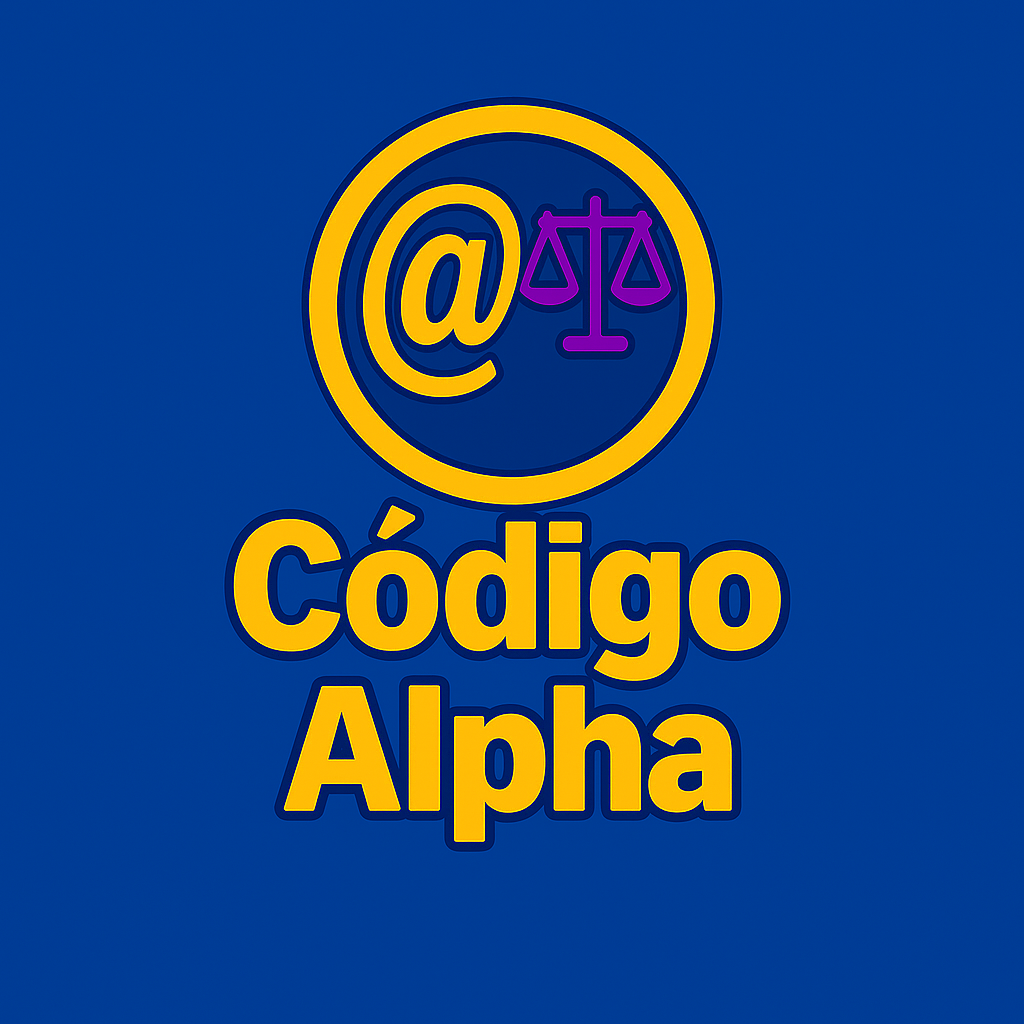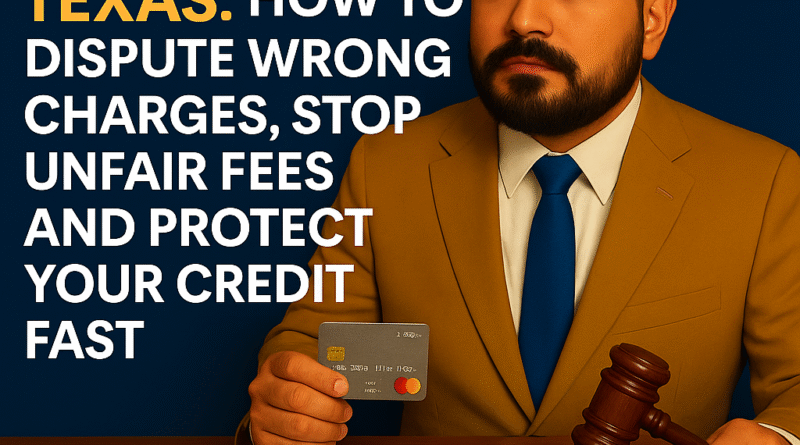FCBA Billing Errors in Texas: How to Dispute Wrong Charges, Stop Unfair Fees and Protect Your Credit Fast
Subtitle: Use the Fair Credit Billing Act in Texas to dispute wrong charges, stop unfair fees, and protect your credit history.
Opened your statement and saw a charge you don’t recognize, a refunded item still billed, or a payment marked “late” when you know you paid on time? Take a breath. In Texas, you can use the Fair Credit Billing Act (FCBA) and related protections to challenge billing errors, pause collection, and prevent damage to your credit—if you act correctly and on time.
Understand FCBA Protections: What Counts as a Billing Error (and Why It Matters)
The FCBA is a federal law that protects consumers from certain credit card and
open-end credit billing errors. It applies in Texas the same way it does nationwide and works
alongside Fair Credit Reporting Act (FCRA) and Texas consumer laws.
Common “billing errors” covered by FCBA include:
- Unauthorized charges (fraud, stolen card, card-not-present abuse).
- Charges with the wrong date, amount, or currency.
- Failure to post payments or credits (returns, adjustments, refunds).
- Failure to send a statement to your correct address (after proper notice).
- Charges for goods/services not delivered or accepted (under specific conditions).
- Math errors or duplicated transactions.
• Collection on the disputed amount must pause during the investigation.
• The issuer cannot report you delinquent on the disputed portion if you follow FCBA steps.
• You keep leverage while they prove the charge instead of paying first and fighting later.
• ~1 in 5 consumers find at least one potential error on a credit report.
• Billing disputes, when done in writing and on time, are far more likely to be corrected than verbal complaints.
• Many FCBA timelines are only 60 days — delay is expensive.
The Legal Framework: FCBA Rules, Timelines, and Texas Context
To make FCBA work for you in Texas, you must respect its formal requirements.
Key FCBA rules:
- 60-day deadline: You generally have 60 days from the date the statement containing the error was sent to dispute in writing.
- Written notice: Send a dispute letter to the billing inquiries address, not the payment address.
- Temporary protections: While the issuer investigates:
- They cannot try to collect the disputed amount.
- They cannot close your account solely because you filed a proper dispute.
- They cannot report you late on the disputed portion if you followed FCBA steps.
- Investigation deadlines:
- They must acknowledge your dispute within 30 days (unless resolved earlier).
- They must resolve it within two billing cycles, not exceeding 90 days.
Texas angle:
- Texas Deceptive Trade Practices–Consumer Protection Act (DTPA) and other state laws may apply if the issuer or merchant acts deceptively or refuses to correct clear errors.
- For non-credit-card billing (utilities, medical), FCBA may not apply, but FCRA, contract rights, and Texas law can still support disputes.
Use FCBA for qualifying billing errors on credit cards/open-end credit; combine with FCRA for credit
reporting issues and Texas consumer laws when conduct is deceptive or abusive.
Step-by-Step: How to Dispute FCBA Billing Errors the Right Way
Here is a practical, legally grounded roadmap you can follow in Texas.
- Review your statement carefully.
- Highlight any charge you do not recognize or that looks wrong.
- Verify against receipts, confirmations, deliveries, and refunds.
- Gather proof.
- Receipts, emails, screenshots, shipping/tracking, refund confirmations, prior statements.
- Write a formal FCBA dispute letter.
- Include: your name, address, account number (partial), the specific charge, statement date,
and clear explanation of why it’s wrong. - State that you are disputing under the Fair Credit Billing Act.
- Include: your name, address, account number (partial), the specific charge, statement date,
- Send by certified mail to the billing inquiries address.
- Mail within 60 days from when the statement was sent.
- Keep copies and the certified mail receipt as evidence.
- Pay the undisputed portion.
- Continue paying all amounts that are not in dispute to avoid interest and legitimate late fees.
- Monitor the issuer’s response.
- They must either correct the error and send a written adjustment, or explain with evidence why they think the bill is correct.
- If they rule against you, they must tell you when payment is due and your right to see documentation.
- Escalate if needed.
- If they ignore timelines, continue collecting on clearly disputed amounts, or report you late,
consider a complaint to the CFPB, Texas Attorney General, or consult a consumer lawyer.
- If they ignore timelines, continue collecting on clearly disputed amounts, or report you late,
✔ Identify the error
✔ Dispute in writing within 60 days
✔ Send to the correct address via certified mail
✔ Pay undisputed charges
✔ Track deadlines & keep all records
✔ Seek legal help if issuer violates your rights
Extra Protection: Complex Errors, Credit Damage, and When to Get Help
Some billing issues go beyond a simple wrong charge. These situations call for closer attention:
- Fraud / identity theft: Combine an FCBA dispute with fraud alerts, credit freezes, and FCRA disputes with bureaus.
- Merchant disputes: Non-delivery or defective goods may qualify for FCBA protection if requirements are met (e.g., purchase amount, location, and first resolving with merchant).
- Systematic errors: If your issuer repeatedly misapplies payments or fees, this may support broader claims or regulatory complaints.
- Credit reporting fallout: If a disputed charge leads to late marks, collections, or denials, FCRA claims may exist alongside FCBA remedies.
- Retaliation or closure: If an issuer closes or restricts your account solely because you exercised FCBA rights, speak to counsel.
• Issuer ignores your written dispute or misses FCBA deadlines.
• You’re charged interest/fees on clearly disputed amounts.
• They report you late while the FCBA dispute is pending.
• You face denials (auto, mortgage, job) due to the unresolved error.
• You see patterns of abuse, not just one mistake.
Examples / Short Models
Example 1 – Unauthorized Charge Maria in Texas sees a $480 electronics charge she never made. She sends an FCBA letter within 60 days by certified mail. The issuer removes the charge, reverses interest, and updates her account. Example 2 – Missing Payment A timely $600 payment was misapplied and marked late. The consumer disputes in writing, attaches bank proof. The issuer corrects the posting, removes late fee, and withdraws the negative report. Example 3 – Service Not Provided A contractor never performed the agreed work. After trying to resolve with the merchant, the consumer uses FCBA rights. The issuer investigates and issues a credit for the undelivered service.
Common Mistakes to Avoid
- Calling only by phone and never sending a written FCBA dispute letter.
- Missing the 60-day deadline from the statement date.
- Sending disputes to the payment address instead of the billing inquiries address.
- Failing to pay undisputed charges and triggering valid late fees.
- Throwing away statements, envelopes, or mail receipts that prove your timeline.
Conclusion: Fix Errors Early and Use the Law as Your Shield
Billing errors are stressful, but you are not powerless. The FCBA, together with FCRA and Texas
consumer protections, gives you clear steps to challenge wrong charges, pause collection on
disputed amounts, and prevent unfair damage to your credit profile. When you act quickly, document
everything, and use written disputes, you convert confusion into control.
If your issuer refuses to follow the rules, keeps charging bogus fees, or hurts your credit despite
a proper dispute, do not simply pay to “make it go away.” Reach out to a consumer rights attorney
in Texas or a reputable legal aid organization to review your case and turn the law in your favor.
QUICK GUIDE – FCBA BILLING ERRORS: HOW TO FIX THEM IN TEXAS
- 1. Read each credit card / open-end statement as soon as it arrives.
- 2. Flag unauthorized charges, wrong amounts, missing payments, or undelivered goods/services.
- 3. Gather proof: receipts, emails, tracking, screenshots, bank records.
- 4. Send a written FCBA dispute within 60 days to the billing inquiries address (not payment PO box).
- 5. Clearly list the disputed items; state you dispute under the Fair Credit Billing Act.
- 6. Pay undisputed amounts; the issuer must pause collection on the disputed portion during review.
- 7. If deadlines are ignored or your credit is harmed, escalate: CFPB, Texas AG, or a Texas consumer law attorney.
FAQ – FCBA Billing Errors in Texas
1. What is the FCBA and when does it apply?
The Fair Credit Billing Act is a federal law that covers billing errors on credit cards and certain open-end credit accounts, including accounts used by Texans with national or local issuers.
2. What counts as a “billing error” under FCBA?
Unauthorized charges, wrong amounts or dates, math errors, missing payments or credits, statements sent to the wrong address, and charges for goods/services not delivered or accepted under qualifying conditions.
3. How long do I have to dispute a billing error?
You generally have 60 days from the date the creditor mailed or delivered the statement containing the error to send a written dispute to the correct billing inquiries address.
4. What protections do I get while the dispute is investigated?
The creditor must acknowledge within 30 days (unless corrected sooner) and resolve within two billing cycles (max 90 days); it cannot collect or report you late on the disputed amount during a proper FCBA investigation.
5. Do I still need to pay part of the bill?
Yes. You should pay all undisputed charges to avoid valid late fees or interest on amounts that are not being challenged.
6. How does Texas law interact with FCBA?
Texas consumer laws, including the Deceptive Trade Practices–Consumer Protection Act, can provide extra remedies if issuers or merchants act deceptively or refuse to correct clear errors, in addition to FCBA/FCRA rights.
7. What if the creditor refuses to fix the error?
Request documentation, file complaints with the CFPB and Texas Attorney General, dispute any resulting credit report issues under the FCRA, and consult a Texas consumer rights attorney about potential claims.
Legal Foundation & Authorities
- Fair Credit Billing Act (FCBA), 15 U.S.C. §§ 1666–1666j:
Establishes rights to dispute billing errors, timelines, investigation duties, and limits on creditor collection activity while disputes are pending. - Regulation Z (12 C.F.R. Part 1026):
Implements FCBA and details procedures creditors must follow for resolving billing error notices. - Fair Credit Reporting Act (FCRA), 15 U.S.C. § 1681 et seq.:
Governs accuracy of credit reporting; requires furnishers and bureaus to investigate disputes about information derived from billing errors. - Texas Deceptive Trade Practices–Consumer Protection Act (Tex. Bus. & Com. Code Ch. 17):
May apply where a creditor or merchant engages in misleading, unfair, or deceptive conduct relating to billing or dispute handling. - Texas consumer enforcement bodies:
The Texas Attorney General’s Office and federal agencies (CFPB, FTC) enforce compliance and accept consumer complaints about unlawful billing practices.
Together, these authorities allow Texas consumers to challenge improper charges, demand proper investigations,
correct credit reports, and seek damages when creditors ignore or violate their statutory duties.
Final considerations
Billing errors are not just annoying—they can trigger late fees, interest, collections, and credit denials if you ignore them.
When you act quickly, dispute in writing, and keep organized records, the FCBA and related laws give you real leverage to
correct mistakes and prevent long-term harm.
This information is for educational purposes only and is not legal advice. It does not create an attorney–client
relationship and may not reflect the latest changes in federal or Texas law. Your rights and options depend on the
specific facts of your account, contracts, and credit history. Before making payments, refusing to pay, or filing
formal complaints or lawsuits, consult a qualified consumer rights attorney or legal aid organization licensed in Texas.

